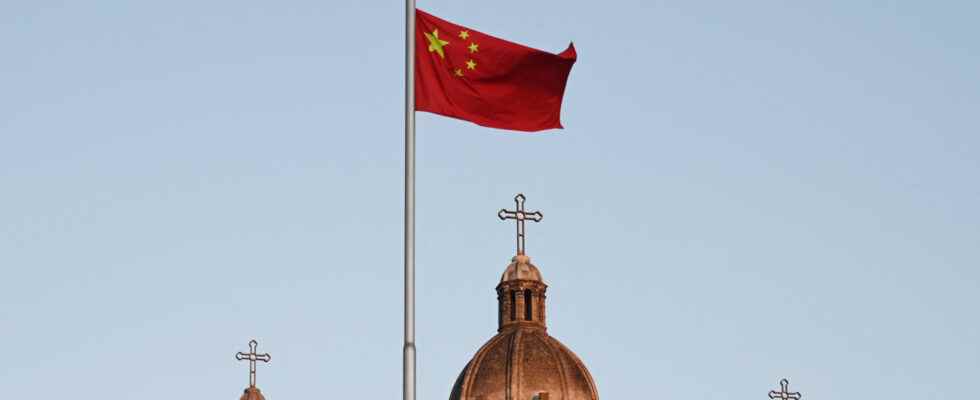The Vatican and the communist regime in Beijing have renewed for two years their historic agreement on the thorny issue of the appointment of bishops in China, amid tensions over the situation of Catholics in the country. “The Holy See and the People’s Republic of China, after appropriate consultations and evaluations, have agreed to extend for two years the validity of the provisional agreement on the appointment of bishops, signed on September 22, 2018” and renewed a first times in 2020, the Vatican announced in a statement.
An agreement whose content has not been made public
This still “provisional” agreement, the content of which has not been made public, aims to bring together Chinese Catholics divided between the official and underground Churches, while giving the Pope the last word in appointing bishops. But in four years, this agreement has sparked criticism within the Church, some seeing it as a stranglehold by Beijing on the approximately 10 million Catholics in the country, where churches have been destroyed and religious nurseries closed, while the restriction of religious freedoms is always singled out.
“Obviously, we cannot ignore the many difficulties that affect the concrete life of Catholic communities, to which we pay the greatest attention”, conceded Cardinal Pietro Parolin, Secretary of State and N.2 of the Holy See, in an interview with official Vatican media.
In view of the “numerous situations of heartbreak in which Catholic communities have sometimes found themselves in recent decades”, it “seemed prudent and judicious to take into account both the needs expressed by the authorities of the country and the needs of the communities Catholics,” he explained.
China, “a very complex country”, according to Pope Francis
After the split between China and the Vatican in the 1950s, Catholics were divided between an official Church, controlled by Beijing, and an underground Church. According to diplomatic sources, this – expected – renewal was disrupted by the arrest in early May in Hong Kong of Cardinal Zen, one of the highest dignitaries of the Catholic Church in Asia and whose trial is underway.
Asked about this issue on his return from a trip to Kazakhstan in September, Pope Francis said: “To qualify China as a democracy, I would not do it, because it is a very complex country (…) Rather than qualify, I seek to support the path of dialogue.” “It is not easy to understand the Chinese mentality, but it must be respected,” he added.
A third term is emerging for Xi Jinping
For his part, Filipino Cardinal Luis Antonio Tagle told Fides that “favoring the choice of worthy and competent bishops is also in the interest of governments and national authorities, including Chinese”. Under the terms of the agreement announced in 2018, the sovereign pontiff had agreed to recognize the appointment of seven bishops appointed by the Chinese government without its agreement. But for four years, only six prelates have been appointed.
This announcement comes at a time when the Chinese Communist Party (CCP) reaffirmed on Saturday at the end of its congress the “central role” of Xi Jinping, on the eve of the almost certain formalization of a third term for the strong man of Beijing. According to the faithful, the crackdown on the underground Church has not diminished since the China-Vatican rapprochement, while the regime of President Xi Jinping seems to be increasing its surveillance of all religions.
